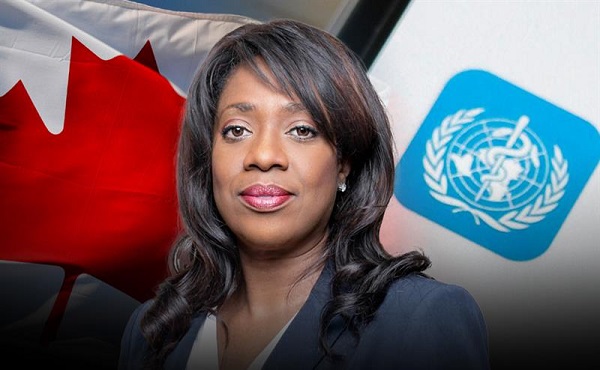MAiD
Over 40% of people euthanized in Ontario lived in poorest parts of the province: government data

From LifeSiteNews
Statistics from the Ontario Coroner’s Medical Assistance in Dying Death Review Committee show that citizens living in the poorest areas of the province are significantly overrepresented in euthanasia death figures.
Statistics from the Ontario Coroner’s Medical Assistance in Dying (MAiD) Death Review Committee show that citizens living in impoverished areas are killed by euthanasia at a disproportionate rate.
According to the report, over 40 percent of those euthanized in Ontario live in the poorest parts of the province despite the fact that other reports say only 20 percent of the population lives in these regions, suggesting Ontario’s poorest are more likely to opt for euthanasia than the financially secure.
The report divides the cases into Track 1 euthanasia deaths (euthanasia given to those whose death is reasonably foreseeable) and Track 2 deaths (euthanasia given to those whose death is not reasonably foreseeable). 41% of Track 1 deaths and 48% of Track 2 deaths were of people living in Ontario’s poorest neighborhoods.
However, when accounting for “age and labour-force participation” as “measures of disadvantage,” the Death Review Committee report found that 57% of Track 2 requests came from the poorest in society, while 42% of Track 1 requests were from the same sector.
Interestingly, or perhaps alarmingly, this statistic is not found in other counties, as data from the Netherlands and Oregon found “death under the (Oregon Death with Dignity Act) was associated with having health insurance and with high educational status, both indirect indicators of affluence.”
A culture of death and eugenics
However, in Canada, poverty has become a driving factor among those who end their lives via MAiD. Indeed, the Death Review Committee report is only the latest document to confirm the growing number of Canadians choosing to end their lives, at least in part, because they are poor.
First introduced in 2016, MAiD was initially only available to those who were terminally ill. However, in 2021, Prime Minister Justin Trudeau’s government expanded the deadly practice to be available to those who are not at risk of death but who suffer from chronic illness.
Now, Trudeau’s euthanasia regime has apparently created a culture of death and eugenics in Canada as poor or suffering Canadians increasingly feel that their lives are worthless, and they are a burden to society.
In one case, a Nova Scotia grandmother revealed that doctors repeatedly offered her euthanasia while she underwent cancer treatment, making her feel as though she was “better off dead.”
“I felt like a problem that needed to be [gotten] rid of instead of a patient in need of treatment,” she said. “I don’t want to be asked if I want to die.”
Similarly, in May, LifeSiteNews reported on a Canadian man who felt “completely traumatized” and violated that he was offered MAiD “multiple times” instead of getting the proper care he needed while in the hospital.
Additionally, last month, internal documents found that poverty and loneliness are two popular reasons Canadians are choosing euthanasia, which has left doctors feeling uneasy about the morality of the deadly practice.
Healthcare wait times have ballooned nationwide under the Trudeau government, with the average wait hitting an all-time high of 27.7 weeks.
While access to real care continues to be limited, Trudeau and his government have instead worked to expand MAiD thirteen-fold since it was legalized, making it the fastest growing euthanasia program in the world.
The most recent reports show that MAiD is the sixth highest cause of death in Canada. However, it was not listed as such in Statistics Canada’s top 10 leading causes of death from 2019 to 2022.
When asked why MAiD was left off the list, the agency said that it records the illnesses that led Canadians to choose to end their lives via euthanasia, not the actual cause of death, as the primary cause of death.
According to Health Canada, in 2022, 13,241 Canadians died by MAiD lethal injections. This accounts for 4.1 percent of all deaths in the country for that year, a 31.2 percent increase from 2021.
MAiD
Study promotes liver transplants from Canadian euthanasia victims

From LifeSiteNews
A new study encourages transplants from euthanasia donors, saying that harvesting the organs of people killed by euthanasia has a ‘real impact’ on organ supply.
A concerning new study shows that liver transplants from euthanasia donors yield similar results as those from other donations, a finding that could increase pressure to euthanize vulnerable Canadians.
On October 26, the Journal of Hepatology published research comparing liver transplants in Canada from donations after circulatory death – a problematic method of organ donation – and from donations of those who were euthanized, in the latest study into increasing organ transplants from euthanasia or so-called “medical assistance in dying” (“MAID”) victims.
“Our study provides the first large-scale Canadian experience, paralleling previous studies from Belgium and the Netherlands, showing that outcomes are positive, while also demonstrating the real impact that MAiD donation can have on the availability of organs,” co-lead investigator A.M. James Shapiro declared.
“While not all individuals pursuing MAiD are suitable for donation for various reasons, we hope that our study will allow a better understanding of the potential role of organ donation following MAiD,” he continued.
Shapiro highlighted, in his view, “how impactful it can be for saving lives of many people in their final act of generosity.”
Canada is one of few countries, alongside Australia, Belgium, Spain, and the Netherlands, that harvests organs from euthanasia victims. Under the Liberal government, Canada has become the world leader in organ donations from people who obtained state-sanctioned euthanasia.
Recently, the interest in the practice has boomed, after the heart of a euthanized Canadian man was successfully harvested and donated to an American man with heart failure.
While many Canadians are left without necessary healthcare and even goaded to end their lives through euthanasia, the Liberal-run health system appears to prioritize the lucrative business of harvesting organs from Canadians killed off by their euthanasia regime.
According to some estimates, a heart is “worth around $1 million in the U.S. Livers come in second, about $557,000, and kidneys cost about $262,000 each. Not to speak about human skin ($10/inch), stomach ($500), and eyeballs ($1,500 each).”
Additionally, as LifeSiteNews has extensively covered, health officials have sounded the alarm over organs being harvested from still living patients in order to obtain fresh organs for transplants.
Similarly, conservative Irish think tank academic Dr. Angelo Bottone has warned against a push to harvest organs from euthanasia victims before they are killed.
“While donation after euthanasia is already happening in those countries, doctors are now discussing harvesting organs before euthanasia patients are declared dead, in order to preserve organ viability,” Bottone wrote.
“They propose that organs be removed under general anaesthesia before the patient is declared dead, thereby maintaining continuous blood circulation and oxygenation to the organs until the moment of retrieval,” the scholar continued. “This method could significantly improve the quality and quantity of organs available for transplantation.”
The most recent reports show that euthanasia is the sixth highest cause of death in Canada. However, it was not listed as such in Statistics Canada’s top 10 leading causes of death from 2019 to 2022.
Asked why euthanasia was left off the list, the agency said that it records the illnesses that led Canadians to choose to end their lives via euthanasia, not the actual cause of death, as the primary cause of death.
According to Health Canada, in 2022, 13,241 Canadians died by lethal euthanasia injections. This accounts for 4.1 percent of all deaths in the country for that year, a 31.2 percent increase from 2021.
Brownstone Institute
The Doctor Will Kill You Now

From the Brownstone Institute
Way back in the B.C. era (Before Covid), I taught Medical Humanities and Bioethics at an American medical school. One of my older colleagues – I’ll call him Dr. Quinlan – was a prominent member of the faculty and a nationally recognized proponent of physician-assisted suicide.
Dr. Quinlan was a very nice man. He was soft-spoken, friendly, and intelligent. He had originally become involved in the subject of physician-assisted suicide by accident, while trying to help a patient near the end of her life who was suffering terribly.
That particular clinical case, which Dr. Quinlan wrote up and published in a major medical journal, launched a second career of sorts for him, as he became a leading figure in the physician-assisted suicide movement. In fact, he was lead plaintiff in a challenge of New York’s then-prohibition against physician-assisted suicide.
The case eventually went all the way to the US Supreme Court, which added to his fame. As it happened, SCOTUS ruled 9-0 against him, definitively establishing that there is no “right to die” enshrined in the Constitution, and affirming that the state has a compelling interest to protect the vulnerable.
SCOTUS’s unanimous decision against Dr. Quinlan meant that his side had somehow pulled off the impressive feat of uniting Antonin Scalia, Ruth Bader Ginsberg, and all points in between against their cause. (I never quite saw how that added to his luster, but such is the Academy.)
At any rate, I once had a conversation with Dr. Quinlan about physician-assisted suicide. I told him that I opposed it ever becoming legal. I recall he calmly, pleasantly asked me why I felt that way.
First, I acknowledged that his formative case must have been very tough, and allowed that maybe, just maybe, he had done right in that exceptionally difficult situation. But as the legal saying goes, hard cases make bad law.
Second, as a clinical physician, I felt strongly that no patient should ever see their doctor and have to wonder if he was coming to help keep them alive or to kill them.
Finally, perhaps most importantly, there’s this thing called the slippery slope.
As I recall, he replied that he couldn’t imagine the slippery slope becoming a problem in a matter so profound as causing a patient’s death.
Well, maybe not with you personally, Dr. Quinlan, I thought. I said no more.
But having done my residency at a major liver transplant center in Boston, I had had more than enough experience with the rather slapdash ethics of the organ transplantation world. The opaque shuffling of patients up and down the transplant list, the endless and rather macabre scrounging for donors, and the nebulous, vaguely sinister concept of brain death had all unsettled me.
Prior to residency, I had attended medical school in Canada. In those days, the McGill University Faculty of Medicine was still almost Victorian in its ways: an old-school, stiff-upper-lip, Workaholics-Anonymous-chapter-house sort of place. The ethic was hard work, personal accountability for mistakes, and above all primum non nocere – first, do no harm.
Fast forward to today’s soft-core totalitarian state of Canada, the land of debanking and convicting peaceful protesters, persecuting honest physicians for speaking obvious truth, fining people $25,000 for hiking on their own property, and spitefully seeking to slaughter harmless animals precisely because they may hold unique medical and scientific value.
To all those offenses against liberty, morality, and basic decency, we must add Canada’s aggressive policy of legalizing, and, in fact, encouraging industrial-scale physician-assisted suicide. Under Canada’s Medical Assistance In Dying (MAiD) program, which has been in place only since 2016, physician-assisted suicide now accounts for a terrifying 4.7 percent of all deaths in Canada.
MAiD will be permitted for patients suffering from mental illness in Canada in 2027, putting it on par with the Netherlands, Belgium, and Switzerland.
To its credit, and unlike the Netherlands and Belgium, Canada does not allow minors to access MAiD. Not yet.
However, patients scheduled to be terminated via MAiD in Canada are actively recruited to have their organs harvested. In fact, MAiD accounts for 6 percent of all deceased organ donors in Canada.
In summary, in Canada, in less than 10 years, physician-assisted suicide has gone from illegal to both an epidemic cause of death and a highly successful organ-harvesting source for the organ transplantation industry.
Physician-assisted suicide has not slid down the slippery slope in Canada. It has thrown itself off the face of El Capitan.
And now, at long last, physician-assisted suicide may be coming to New York. It has passed the House and Senate, and just awaits the Governor’s signature. It seems that the 9-0 Supreme Court shellacking back in the day was just a bump in the road. The long march through the institutions, indeed.
For a brief period in Western history, roughly from the introduction of antibiotics until Covid, hospitals ceased to be a place one entered fully expecting to die. It appears that era is coming to an end.
Covid demonstrated that Western allopathic medicine has a dark, sadistic, anti-human side – fueled by 20th-century scientism and 21st-century technocratic globalism – to which it is increasingly turning. Physician-assisted suicide is a growing part of this death cult transformation. It should be fought at every step.
I have not seen Dr. Quinlan in years. I do not know how he might feel about my slippery slope argument today.
I still believe I was correct.
-

 Internet2 days ago
Internet2 days agoMusk launches Grokipedia to break Wikipedia’s information monopoly
-

 Business2 days ago
Business2 days agoBill Gates walks away from the climate cult
-

 Alberta1 day ago
Alberta1 day agoNobel Prize nods to Alberta innovation in carbon capture
-

 Censorship Industrial Complex2 days ago
Censorship Industrial Complex2 days agoPro-freedom group to expose dangers of Liberal ‘hate crime’ bill before parliamentary committee
-

 Business18 hours ago
Business18 hours agoCanada’s attack on religious charities makes no fiscal sense
-

 Health2 days ago
Health2 days agoLeslyn Lewis urges Canadians to fight WHO pandemic treaty before it’s legally binding
-

 International7 hours ago
International7 hours agoPrince Andrew banished from the British monarchy
-

 Business7 hours ago
Business7 hours ago“We have a deal”: Trump, Xi strike breakthrough on trade and fentanyl











